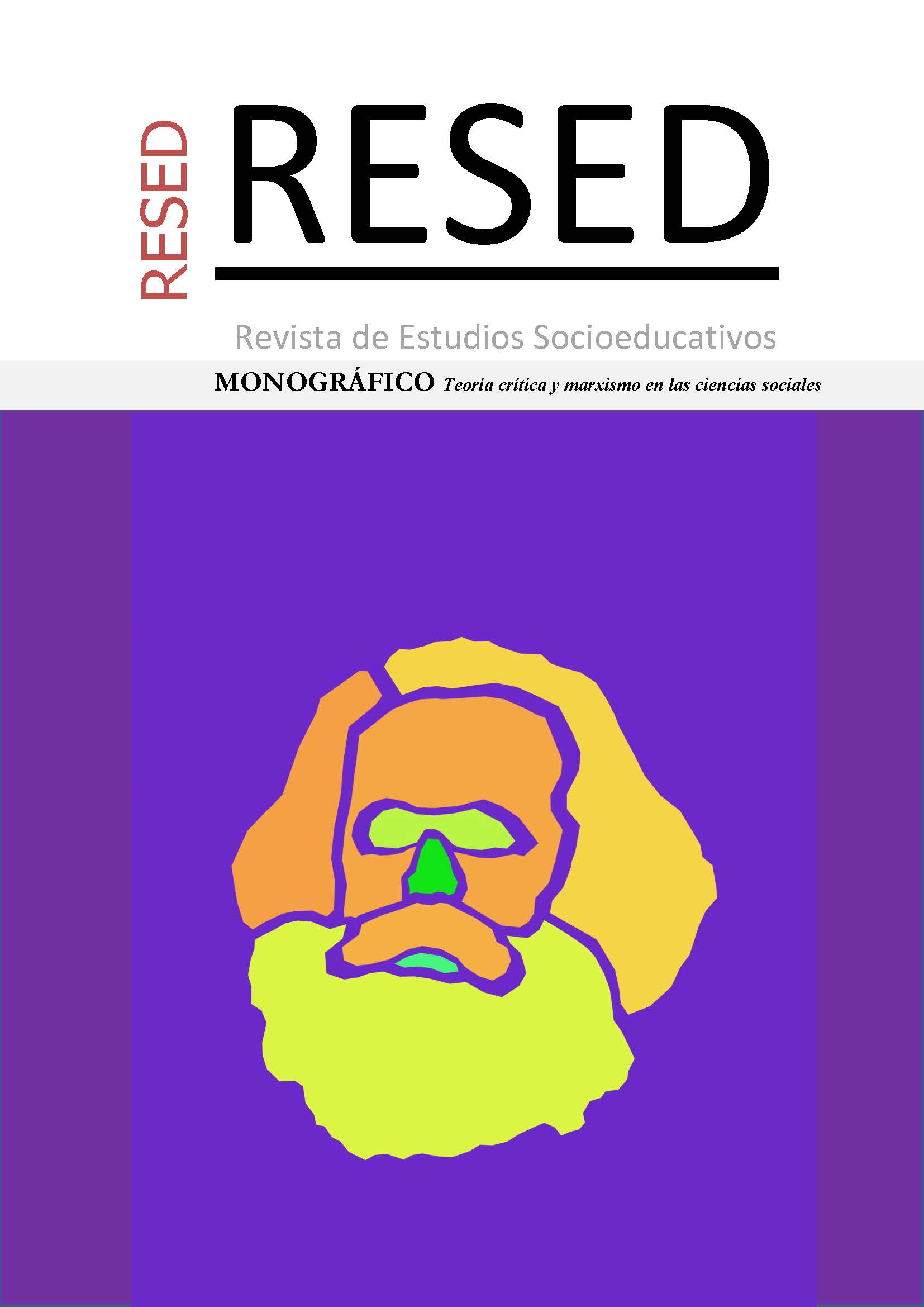THE CRISIS OF LIBERAL GLOBALISATION
FROM THE 2007 CRASH TO THE WAR IN UKRAINE. A HETERODOX MATERIALIST ANALYSIS

Info
Abstract
The aim of this article is to analyse the most relevant historical elements that explain the crisis of hegemony of liberal globalisation, from the 2007 Crash to the war in Ukraine - leaving in suspense what symbolic effects the latter will have - via the WTO blockade, the US-China trade war, the Viral Pandemic and the US withdrawal from Afghanistan. Our critical materialist and eclectic approach is based on international political economy as a sub-discipline of International Relations and aims to incorporate both Gramscian and autonomist - post-labourist - elements, without neglecting the Anglo-Saxon and Latin American socio-historical structuralist perspective. The working hypothesis is based on the idea that the return of nation-state sovereignty to the detriment of the multilateral organisations that manage globalisation is a transitory but historical phenomenon, an interregnum characterised by indefiniteness, uncertainty, fear and "monsters", for example, populist Caesarism or the war in Ukraine. This character of indefinite, non-hegemonic transience is explained by the decaying character of the historical structure of liberal globalisation in its three components: material forces, institutions and ideas.
Keywords
Downloads
How to Cite
License

This work is licensed under a Creative Commons Attribution-NonCommercial 4.0 International License.
References
Acemoglu, D. (Aug 20, 2021). Why Nation-Building Failded in Afghanistan. Project Syndicate. https://bit.ly/3IvBzr0
Agamben, G. (17 de marzo de 2020). Aclaraciones. Comunizar.com. https://bit.ly/3ig0apn
Agnew, J. (2019). Hegemonía. Bandes-Celag.
Ash, M y Louça, F. (2018-2019). Sombras: El desorden financiero en la era de la globalización. Sylone.
Badiou, A. (21 de marzo de 2020). Sobre la situación epidémica. Lobosuelto.com. https://bit.ly/3VRSQxJ
Bernabé Fernández, M. (2012). Afganistán: Crónica de una ficción. Debate.
Bernanke, B. (December 20, 2019). The Great Moderation. Meetings of the Eastern Economic Association, Washington, 2004. https://bit.ly/3QoNWHh
Chul Han, B. (24 de marzo de 2020). El virus no puede reemplazar a la razón. Semana.com. https://bit.ly/3ik9cS9
Cox, R. (1983). Gramsci, Hegemony and International Relations. Essay in Method, Millennium: Journal of International Studies, volumen 12, nº 2, pp.162-175. https://doi.org/cdwv7w
Fumagalli, A. (2009). “Crisis económica global y governance económico-social”. En S. Mezzadra y A. Fumagalli, (Coords). La gran crisis de la economía global (pp. 99-123) Traficantes de Sueños
García Encina, C. (2018). La estrategia de Seguridad Nacional de la Administración Trump. Real Instituto Elcano de Estudios Internacionales y Estratégicos. Documento de Trabajo 6/2018. https://bit.ly/3GNA5at
Gramsci, A. (1981). Cuadernos de la cárcel. Era.
International Monetary Fund. (2007). Global Financial Stability Report, Market Developments and Issues. https://bit.ly/3ZnwgQK
López Villafañe, V. (2016). La emergencia de China como potencia mundial. Fin del periodo de alto crecimiento y nuevos desafíos. Revista Migración y Desarrollo, Universidad Autónoma de Zacatecas, Volumen 14, nº26, 167-195.
Marazzi, Ch. (2009). “La violencia del capitalismo financiero”, en S. Mezzadra y A. Fumagalli, (Coords). La gran crisis de la economía global (pp. 21-61). Traficantes de Sueños
Molina Campano, E. (2018). La filosofía política de Toni Negri. Atrapasueños.
Molina Campano, E. (2019). El concepto de hegemonía en las Relaciones Internacionales: una crítica a Andreas Antoniades. Revista Internacional de Pensamiento Político (RIPP), 14, 427-436.
Molina Campano, E. (2021). Repensando las teorías de las relaciones internacionales a colación del fracaso de EEUU en Afganistán. una mirada materialista ecléctica. Revista Internacional de Pensamiento Político (RIPP), 16, 537-561.
Negri, A. y Hardt, M. (2002). Imperio. Paidós.
RNE. (18 de agosto de 2021.) Entrevista a Joseph Borrell. RTVE. https://bit.ly/3k17ndm
Rosales, O. (2019). El conflicto US-China: nueva fase de la globalización. Revista Estudios Internacionales, Universidad de Chile, 192, 97-126. https://bit.ly/3Is889r
Sanahuja, J.A. (2018). “Crisis de globalización, crisis de hegemonía: un escenario de cambio estructural para América Latina y el Caribe” en: A. Servin, (Ed). América Latina y el Caribe frente a un Nuevo Orden Mundial: Poder, globalización y respuestas regionales (pp. 37-68). Icaria- Cries. http:/bit.ly/2QvHvCR.
Sanahuja, J.A. (noviembre-diciembre de 2022). Interregno: la actualidad de un orden mundial en crisis. Nueva Sociedad, 302. https://bit.ly/3GOhT0o
The Economist. (January 28, 2017). The retreat of the global Company. The Economist. https://bit.ly/3Qp4OOi
The White House. (16 agosto de 2021). Declaración del presidente Biden sobre Afganistán. The White House. https://bit.ly/3vNozFE
Toussaint, E. (2020). No, el coronavirus no es responsable de la caída del precio de las acciones. Viento Sur. https://bit.ly/3XfxJX8
Vercellone, C. (2009). “Crisis de la ley del valor y devenir renta de la ganancia”, en S. Mezzadra y A. Fumagalli, (Coords). La gran crisis de la economía global (pp.63-98). Traficantes de Sueños.
Watson Institute. (2021). Cost of War. https://bit.ly/3GXjCkh
Zelicovich, J. (Enero-Junio de 2019). La crisis de la OMC y el trilema de las negociaciones comerciales internacionales. Revista Relaciones Internacionales, 92.1, 13-33. Escuela de Relaciones Internacionales. https://doi.org/jr2j
Zizek, S. (3 de marzo de 2020). Un golpe letal al capitalismo para reinventar la sociedad. En Pijama Surf. https://bit.ly/3GNvncH


